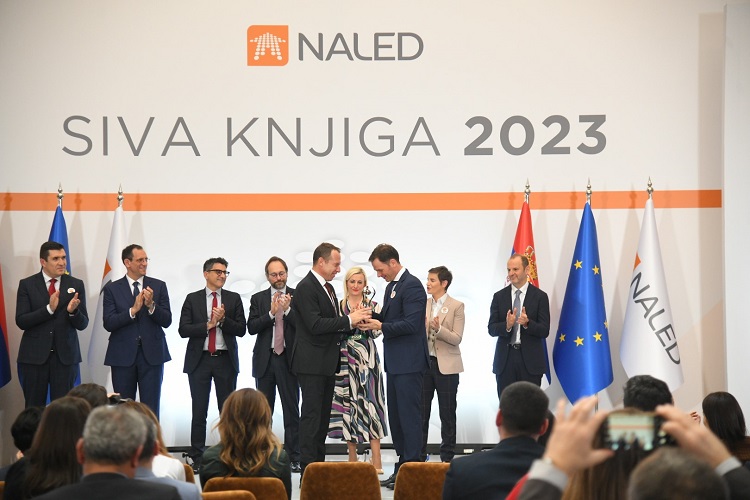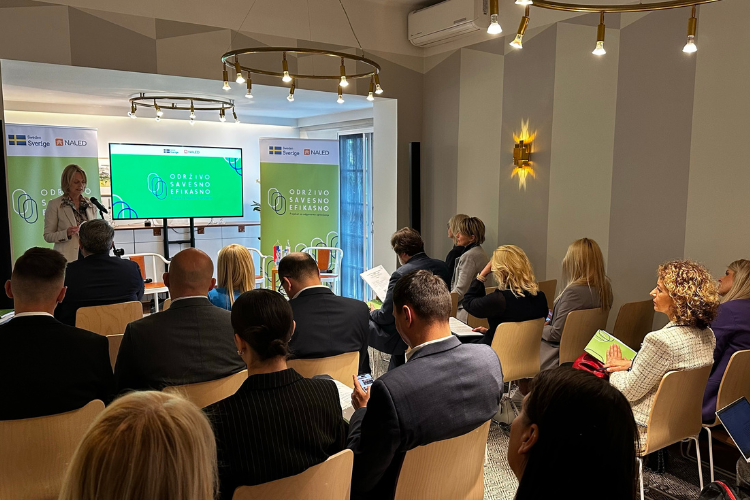The new edition of the Gray Book - are we left with only reform cake from the reforms?
This year, the 17th consecutive edition of the Gray Book, NALED's regulatory Bible, was published, which traditionally presents 100 proposals for reforms to improve the business environment and reduce the administrative burden in Serbia.
Institutions are important
That institutions are important for economic development is nothing new - the first Nobel Prize in Economics for research in this area was awarded in 1993 to Douglas North and Robert Fogel, but the issue was recently brought back into the spotlight when last year Darren Acemola, James Robinson and Simon Johnson were awarded the same prize for their contributions to the subject. In short - quality economic institutions encourage long-term investments in physical and human capital, innovation and entrepreneurship, which all result in higher rates of sustainable economic growth, and consequently in strong growth in living standards and the improvement of a number of social indicators, from the quality of the environment to quality health care and gender equality.
A book of recipes for a good business environment
In the previous 16 editions of the Gray Book, a total of 1,461 recommendations were recorded. A large number of them were repeated from year to year (such as, for example, those related to a significant reduction of the fiscal burden on the lowest wages or the creation of a public register of non-tax levies), but new recommendations were added every year, as the implementation of reforms freed up space for new ones, so a total of 328 new recommendations were recorded. But even the old recommendations are not mere rewriting of the text - every year they are improved and refined, in order to follow the changes in the regulatory, administrative and economic life, so that they reflect the real picture of the problems of the economy and are immediately applicable in practice. So far, a total of 90 recommendations have been resolved, and another 77 have been partially resolved.
The value of the Gray Book lies in the way it is written: through a consultative process in which experts participate, as well as representatives of the economy, professional associations, public institutions, and local governments, which leads to the identification of problems and the best ways to solve them. This approach in practice prevents what the former chief economist of the World Bank, William Easterly, called the "tyranny of experts" - a situation where development consultants from abroad, with little knowledge of the local context and needs, would give recommendations to support economic development, and then wonder why the promised development never happened.
New edition
The previous period was marked by turbulent events on the domestic and international level, which shifted the focus from economic reforms to solving other problems, so we waited a little longer than usual for this year's, 17th edition of the Gray Book, and the figures also show that the reform process has slowed down significantly. Compared to the usual 12 recommendations per year, institutions have partially implemented only two since the previous edition, namely in the departments of energy and agriculture.
On the other hand, there is a relatively large number of initiated recommendations, as many as 11 of them, among which is the multi-year recommendation of NALED regarding the introduction of order into the system of non-tax and parafiscal levies through electronic payments. This recommendation also found its place in the Reform Agenda adopted by the Government at the end of October 2024, which we particularly welcome.
The new edition of the Gray Book traditionally contains 100 recommendations for better business conditions, among which 9 are completely new, and 91 old/improved recommendations. As many as 23 recommendations bear the #EUbadge, as a sign that their fulfillment would contribute to the faster integration of Serbia into the European Union, #BezgotovinskoPlaćanje (#CashlessPayment) denotes 11 recommendations, and #Digitalization as many as 35 of them.
However, as any good cook knows, a recipe book is only worth as much as it is used in cooking. So we hope that by the next edition of the Gray Book we will be able to prepare a regulatory feast for everyone's taste.
Author's text: Mihailo Gajić, head of the Research and Analytics Unit at NALED



